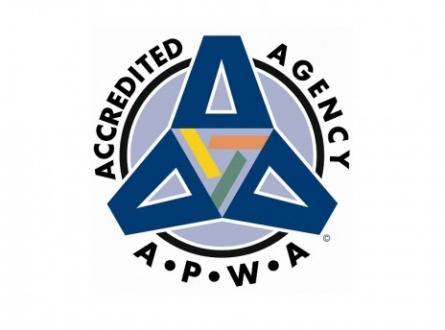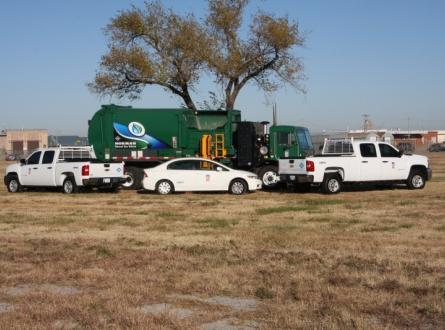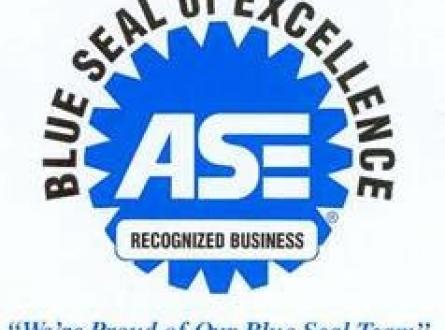Mission
Our Mission at the City of Norman Fleet Division is to uphold the highest level of Integrity, Honesty and Innovative technology for our customers and clients who we serve. This division is committed to providing a safe, economical, state-of-the-art, environmentally friendly transportation and services to allow City departments to fulfill their official duties and to ensure the City’s Public Compressed Natural Gas (CNG) Fueling Facility remains open and operational to the public 24 hours a day 7 days a week, as well as providing clean reliable and safe Public Transportation.
Division Description
Fleet is an internal service division comprised of four areas of service, Light Duty, Heavy Duty, EVT and Transit. The Fleet division operates two maintenance and repair facilities to provide service to 14 City departments with a combined municipal fleet total of approximately 900 units. The division is responsible for asset management, repair and maintenance, fueling service, vehicle acquisition and disposal, alternative fuel program and a small shared-use motor pool program. There are 27 employees within the Fleet Administration and Fleet Repair Sub-Divisions providing the administrative, logistical, and mechanical support to all City Departments who operate City owned equipment and vehicles and for the public and private sector who utilize Norman’s CNG Fueling Facility and Public Transportation.
Fleet Administration is responsible for establishing the citywide parts, fuel and sublet budget. This division provides an annual lifecycle vehicle replacement report, purchases and up-fitting of all city vehicles, awards bids and utilizes the Oklahoma State contract relating to the acquisition of new equipment and vehicles. Fleet Administration provides administrative and management support to all city departments. Specifically, project management, and data analysis using FuelMaster and AssetWorks software.
The Fleet Repair Sub-Divisions support the City Departments and agencies in the delivery of municipal services by ensuring that City vehicles and equipment are available, dependable, and safe to operate in a timely manner. The shop Supervisors are responsible for prioritizing equipment repairs to ensure all departments have a safe and ample amount of equipment available at all times. The Supervisors are also responsible for new equipment acquisitions in their areas of responsibility along with managing the day-to-day repair operations in the shop. The Fleet Repair Technicians are responsible for the daily maintenance and periodic vehicle repairs, including ordering all parts and supplies for the City’s private Unleaded/Diesel Fueling Facility and the private and public sector using CNG Fueling Facility. This division manages over 900 vehicles and equipment, along with 18 generators located throughout Norman to ensure no disruptions to electricity occur for essential divisions during emergencies and natural disasters. Parts procurements and inventory management is provided by a NAPA Integrated Solutions.
The Preventive Maintenance Program is designed with the intent to “prevent” major repairs before they happen. Vehicles and equipment are scheduled on a routine basis, specifically every 5,000 miles (250 hours for those with meters) or every 6 months, whichever comes first. With the cleaner burning fuel on our CNG vehicles, they are scheduled on a routine basis, specifically every 7,500 miles (500 hours for those with meters) or once a year, whichever comes first.
Fleet Division
Vision
The Public Works Fleet Division will strive to be a “first class” industry leading administration and service provider to our customers/clients. We will achieve “first class” status by practicing our core values “Integrity, Honesty and Innovation”. Our decisions will always be data driven and aligned with City, State and Federal laws, and regulations.
Goals
- Provide safe and reliable repairs to all City Divisions.
- Maintain the ASE Blue Seal of Excellence Program and keep the Fleet Division ASE Certified.
- Provide outsourcing for repairs not provided in-house for vehicles and equipment.
- Deliver the highest level of customer service.
- Complete 75% of repairs in 24 hours and 25% of repairs in 48 hours.
- To have 95% fleet availability at all times for vehicles and equipment.
- Provide after hours and weekend emergency road service.
- To uphold a higher standard relationship with all Fleet Heavy Truck/Equipment Repair customers.
- Per the Parts Service Contract, our in-house NAPA IBS parts store will provide 90% parts on demand and 95% of parts requirement within two hours of demand.
Objectives
- Conduct all Department business in an ethical and timely manner.
- Always take a proactive rather than reactive approach to identify problems or issues and initiate corrective action immediately.
- To increase the awareness of the City’s personnel in the need to support the Preventive Maintenance Service program for vehicles and equipment so that safety standards are continually met, liabilities are reduced, and an overall reduction in repair costs can be achieved.
- Benchmark repairs with industry standards.
- To keep comeback repairs to a minimum.
Maintenance Program
The Preventive Maintenance Program is designed with the intent to “prevent” major repairs before they happen. Vehicles and equipment are scheduled on a routine basis, specifically every 4,000 miles (250 hours for those with meters) or every 6 months, whichever comes first. With the cleaner burning fuel on our CNG vehicles, they are scheduled on a routine basis, specifically every 7,000 miles (500 hours for those with meters) or once a year, whichever comes first.
PM-C For vehicles, this is our most common PM Service and is completed every 5,000 miles or 250 hours. It is a 20 point inspection that includes oil/filter change. Click here for an example PM-C checklist.
PM-D For vehicles, this is our more in depth PM Service and is completed every 28,000 miles or 1000 hours. It is a 50 point inspection that includes oil/filter change and Brake/Transmission flush. Click here for an example PM-D checklist.
PM-A For trailers, this is our PM Service that includes an inspection and fluid top off and is completed once or twice a year, as recommended by the manufacturer. Click here for an example PM-A checklist.
PM-B For construction equipment, this is our PM Service that includes an inspection and fluid top off and is completed once a year. Click here for an example PM-B checklist.
PM-N For Compressed Natural Gas equipment/vehicles, this is our CNG inspection that is completed every 7,000 miles or every two year, whichever comes first, by our Oklahoma state certified Alternative Fuel Equipment technicians. Click here for an example PM-N checklist.
PM-9 For construction equipment, this is Boom and Crane inspection that is completed once a year by a certified vendor.
The most commonly used form during the course of business is the Fleet Vehicle Repair Work Order sheet. Each time an employee brings a vehicle or piece of equipment to the Fleet division for repairs or routine maintenance, they are required to complete the Fleet Vehicle Repair Work Order form. There are several areas on the form that allow the employee to communicate the needs of their division with the repairs or routine maintenance needed for the unit. This allows the Fleet Supervisor to prioritize shop floor work throughout the course of the day. Click here for an example Fleet Vehicle Repair Work Order.
Field Service Program
The Field Service Program is designed with the intent of performing necessary, complex repairs to specialized vehicles and equipment to accommodate an excessive workload out in the field. This program has a dedicated Field Service Mechanic II and a specialized Field Service Truck. The Field Service Mechanic II is able to have quality repair services performed in the field resulting in less downtime created by equipment and vehicles waiting for technicians to administer necessary repairs on equipment that cannot physically travel to fleet under its own power or travel on public road systems.
Benchmarking Program
The Benchmarking Program is designed with the intent of tracking technician productivity and comparing repair times on vehicles and equipment with industry standards. Fleet technicians complete benchmark comparisons once a week to ensure they meet industry standard times on all repairs. This helps keep unnecessary time from being spent completing repairs and reach our goal of having 75% of repairs being completed in 24 hours and delivering the highest level of customer service. Benchmarking helps the Fleet Division identify any training employees may need with the ever changing technology requirements.
Norman Alternative Fuel Program
On February 24, 2009, Norman City Council adopted the Norman Alternative Fuel Program, one of very few such municipal programs in Oklahoma. Since that time, the City has become a leader in alternative fuel technology with over 25% of the fleet being alternative fuel. Out of 101 Public/Private Compressed Natural Gas (CNG) Fueling Facilities located in the Oklahoma Natural Gas (ONG) network, the City of Norman's CNG Fueling Facility is ranked 10th in Oklahoma for total volume throughput with an annual dekatherm usage of approximately 51,250 translating into 410,000 gas gallon equivalents. In addition to environmental benefits, the city has saved approximately $3,500,000 since 2009 in fuel costs by replacing traditional fuel vehicles with CNG vehicles.
On January 9, 2012, The City of Norman opened their CNG Fueling Facility with public access. The station provides CNG for citizens and city vehicles. The facility was built with the aid of stimulus funds. In 2016, extra storage was added to the station and a smart control panel was added to take advantage of off-peak compressor use so our CNG compressors do not run as much during peak hours. Staff anticipates annual savings of electricity costs of demand charges by OG&E from 11 cents to 5 cents per KWh, translating into savings of $4,000 over the 5 month period each year.
Where applicable, green procurement is practiced by purchasing CNG or Flexible-fuel vehicles whenever possible and every vehicle purchased must be in the top 3% of its fuel efficiency class. This Division collaborates with the Association of Central Oklahoma Governments (ACOG) and utilizes competitive grants to help offset the cost of alternative fuel technology, when available.
In 2019, The City collaborated with Francis Solar to install five level III Electric Vehicle chargers throughout Norman. These facilities is available to the public as well as the city.
Locations:
Rudy’s Country Store and BBQ (50kw)
3450 Chautauqua Avenue, Norman, OK 73072
Robinson Crossing Shopping Center (200kw)
1236 North Interstate Drive, Norman, OK 73072
Down Town Municipal parking lot (50kw)
224 East Gray Street, Norman, OK 73072
Norman CNG Station (50kw)
2351 Goddard Avenue, Norman, OK
Taxi Cab Inspection Program
The Taxi Cab Inspection Program is designed with the intent of ensuring the safety of Norman citizens. In 2006, Fleet in conjunction with City Council, pursuant to chapter 13 in the City of Norman Code of Ordinance, began inspecting all taxi cabs, limousines, and/or all vehicles that are licensed to transport citizens in the City of Norman. Inspections are due by the end of March each year and are $35 per vehicle with a $20 re-inspection fee, if needed.
National, State and Regional Partnerships
State and Regional Partnership
APWA
Moore Norman Technology Center
Southwest EVT
Oklahoma Metro Clean Cities Coalition
Oklahoma Fleet Managers Association
ASE Program
The Fleet Division has been recognized by the National Institute for Automotive Service Excellence (ASE) Blue Seal of Excellence since 2008. In order to earn the ASE Blue Seal recognition, a minimum of 75% of the shop’s technicians must be certified. Among those certified technicians, the shop must cover all ASE certifications that correspond to every area of service the shop offers.
The Fleet division implemented an incentive based ASE program July 2020. Each technical can earn up to $2000 every four years by testing and obtaining ASE’s in their related field.
Public Transit
The City of Norman’s Transit Sub-Division manages the maintenance and repairs of the public transit fleet of vehicles. The public transit fleet is owned by the City and includes fixed-route and paratransit service vehicles.
Public Transit Operations, such as grant writing, the asset procurement process, and managing a subcontract with EMBARK, are conducted by the Transit and Parking Division of the Norman Public Works Department.
Emergency Vehicle Technician (EVT)
The City of Norman’s EVT Sub-Division manages the maintenance and repairs of twenty-nine (29) fire apparatuses and five (5) police units along with assisting the NFD with procurement. The goal of the EVT Division is to provide safe, consistent, and cost effective support for the City’s public safety fleet, while following the guidelines set forth under the NFPA 1071 fire code standards for EVT programs. The EVT division currently employs three (3) positions, one (1) Equipment Support Supervisor, one (1) EVT Specialist, and one (1) EVT Mechanic II.



